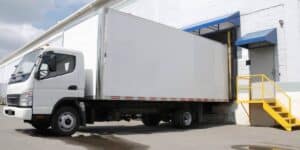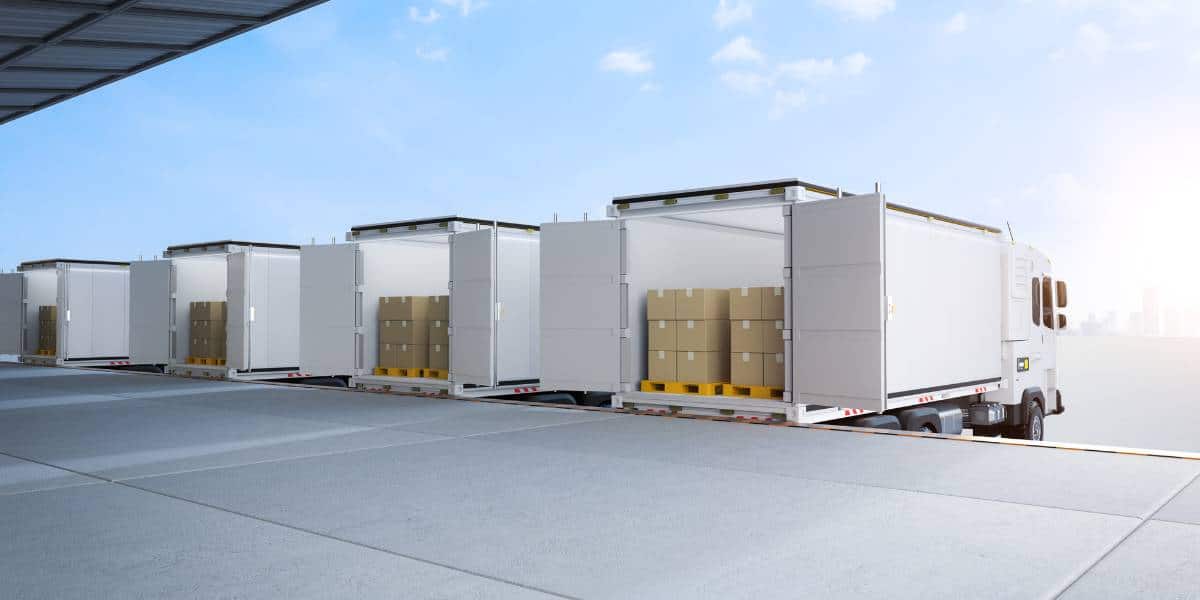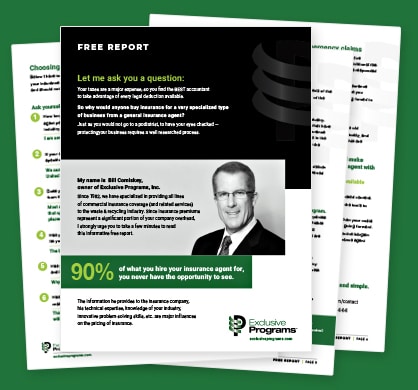Owning a fleet of commercial box trucks comes with its own set of challenges, especially when it comes to securing the right insurance coverage. As a business owner in the waste and recycling industry, particularly in garbage collection, ensuring that your vehicles are adequately protected is paramount. Let’s explore the key factors that influence commercial box truck insurance costs and how you can navigate through them effectively.
Understanding Box Truck Insurance Cost
One of the primary concerns for business owners in the waste and recycling sector is the cost of insurance for their box trucks. Several factors influence the insurance premiums, including:
Vehicle Specifications
The size, weight, and value of your box trucks play a significant role in determining the insurance cost. Larger trucks with higher values may require more extensive coverage, leading to higher premiums. Additionally, specialized equipment or modifications to the trucks can also impact insurance costs, as they may require additional coverage.
For instance, a fleet of heavy-duty box trucks used for garbage collection may have higher insurance premiums compared to smaller trucks used for lighter-duty tasks. This is because larger trucks pose a greater risk of causing significant damage in accidents, leading insurance providers to adjust premiums accordingly. Additionally, specialized equipment such as hydraulic lifts or compactors installed on the trucks may require additional coverage, further impacting insurance costs.
Coverage Limits
The extent of coverage you choose for your box trucks will directly impact the insurance cost. Opting for comprehensive coverage with higher limits will naturally result in higher premiums but offers greater protection against potential risks. It’s essential to strike a balance between adequate coverage and affordability, ensuring that you’re adequately protected without overpaying for unnecessary coverage.
When determining coverage limits, businesses must consider their financial capabilities and risk tolerance. While opting for higher coverage limits may offer greater protection, it can also increase insurance costs significantly. Conducting a thorough risk assessment and evaluating the potential financial impact of different scenarios can help businesses determine the appropriate coverage limits to mitigate risks effectively without overextending their budget.
Driving History
A good loss ratio, demonstrating a history of responsible driving behavior and minimal claims, can help lower insurance premiums. Insurance providers often reward businesses with a clean driving record with lower rates. Implementing driver training programs and promoting safe driving practices among your employees can help maintain a positive loss ratio, leading to lower insurance costs over time.
Businesses can proactively reduce insurance costs by prioritizing safety and investing in driver training programs. By educating drivers about safe driving practices and promoting a culture of safety within the organization, businesses can minimize the risk of accidents and claims, ultimately leading to lower insurance premiums. Additionally, maintaining a clean driving record demonstrates to insurance providers that the business is committed to minimizing risks, potentially resulting in lower rates and more favorable insurance terms.

Industry-Specific Risks
Businesses in the waste and recycling industry, such as garbage collection companies, may face unique risks that can impact insurance costs. For example, the nature of the work, including frequent stops and starts, as well as exposure to hazardous materials, can increase the likelihood of accidents and claims. Insurance premiums may reflect these industry-specific risks, making it essential for businesses to understand and mitigate these risks to minimize insurance costs.
Garbage collection companies must assess the specific risks associated with their operations, such as navigating urban environments, interacting with pedestrians and other vehicles, and handling potentially hazardous materials. By implementing risk management strategies tailored to the industry’s unique challenges, such as implementing safety protocols for waste collection and disposal and providing specialized training for drivers and crew members, businesses can minimize the likelihood of accidents and claims, ultimately leading to lower insurance costs.
Additionally, partnering with insurance providers that specialize in the waste and recycling industry can help businesses access tailored insurance solutions that address their unique needs and risks, potentially resulting in more competitive rates and comprehensive coverage.
Commercial Box Truck Insurance: Exploring Coverage Options
When it comes to commercial box truck insurance, it’s essential to understand the different coverage options available to tailor a policy that suits your specific needs. Here are some common types of coverage to consider:
Liability Insurance
This coverage protects you in case your box truck is involved in an accident that causes bodily injury or property damage to others. It typically includes bodily injury liability and property damage liability. Liability insurance is essential for businesses operating box trucks, as it provides financial protection against potential lawsuits and claims from third parties.
Liability insurance is a fundamental component of commercial box truck insurance, as it protects businesses from the financial consequences of accidents and injuries involving their vehicles. For garbage collection companies, the risk of accidents involving pedestrians, cyclists, and other vehicles is heightened due to frequent stops and starts in urban environments. Liability insurance provides coverage for bodily injury and property damage claims, helping businesses navigate legal challenges and financial liabilities resulting from accidents.
Collision Coverage
Collision coverage helps pay for damages to your box truck resulting from collisions with other vehicles or objects, regardless of fault. This coverage is particularly crucial for protecting your assets and getting your trucks back on the road quickly after an accident. By including collision coverage in your insurance policy, you can minimize out-of-pocket expenses associated with repairing or replacing damaged vehicles, reducing the financial impact of accidents on your business.
Collision coverage is essential for businesses operating box trucks, as it provides financial protection against the costs of repairing or replacing vehicles damaged in accidents. For garbage collection companies, where vehicles are constantly on the move in urban environments, the risk of collisions with other vehicles, stationary objects, or infrastructure is heightened.
Collision coverage helps mitigate the financial impact of accidents, ensuring that businesses can repair or replace damaged vehicles promptly and resume operations without significant disruptions.
Comprehensive Coverage
Comprehensive coverage protects against non-collision incidents, such as theft, vandalism, fire, or natural disasters. It offers peace of mind knowing that your box trucks are covered in various scenarios, ensuring that your business can recover quickly from unexpected events. Comprehensive coverage is especially valuable for businesses operating in the waste and recycling industry, where vehicles are exposed to various risks during daily operations.
Comprehensive coverage is essential for businesses operating box trucks, as it protects a wide range of non-collision incidents that can disrupt operations and incur significant costs. For garbage collection companies, whose vehicles are often parked in urban areas overnight or during off-hours, the risk of theft, vandalism, or damage from natural disasters is heightened.
Comprehensive coverage provides financial protection against these risks, helping businesses recover quickly from unexpected events and minimize the impact on their operations and bottom line.

Cargo Insurance
For garbage collection companies, ensuring the safety of the cargo being transported is vital. Cargo insurance provides coverage for the goods or materials carried by your box trucks, protecting against damage or loss during transit. By including cargo insurance in your policy, you can safeguard your business against financial losses resulting from damaged or lost cargo, ensuring that your customers’ goods are protected from pickup to delivery.
Cargo insurance is a critical component of commercial box truck insurance for garbage collection companies, as it protects the valuable goods or materials being transported in their vehicles. Garbage collection companies often handle a wide range of materials, including recyclables, organic waste, and hazardous materials, which may have varying degrees of value and susceptibility to damage. Cargo insurance provides financial protection against the risks of damage, theft, or loss during transit, ensuring that businesses can fulfill their obligations to customers and suppliers and maintain their reputation for reliability and professionalism.
Tips for Lowering Commercial Box Truck Insurance Costs
While insurance is a necessary expense for businesses operating box trucks, there are several strategies you can employ to help lower your insurance costs:
Invest in Safety Measures
Implementing safety measures such as driver training programs, installing GPS tracking devices, and maintaining a well-maintained fleet can help reduce the risk of accidents and lower insurance premiums. By prioritizing safety, you can demonstrate to insurance providers that your business is proactive in minimizing risks, leading to lower insurance costs over time.
Investing in safety measures is not only essential for protecting your drivers and employees but can also lead to significant cost savings on insurance premiums. Insurance providers often offer discounts or incentives for businesses that implement safety programs and demonstrate a commitment to minimizing risks.
By investing in driver training programs, installing safety equipment such as GPS tracking devices, and conducting regular vehicle maintenance, businesses can reduce the likelihood of accidents and claims, ultimately leading to lower insurance costs and improved profitability.
Bundle Policies
Consider bundling your commercial box truck insurance with other business insurance policies, such as general liability or workers’ compensation. Insurance providers often offer discounts for bundling multiple policies, helping you save on overall insurance costs. By consolidating your insurance needs with a single provider, you can streamline the insurance process and potentially unlock additional savings through bundled discounts.
Bundling policies is a smart strategy for businesses looking to reduce insurance costs while maximizing coverage. By consolidating multiple insurance policies with a single provider, businesses can take advantage of bundled discounts and streamlined administration, resulting in significant cost savings over time. Additionally, bundling policies with a single provider can simplify the insurance process, making it easier to manage and track coverage across multiple lines of business.
Review and Update Coverage Regularly
As your business evolves and expands, your insurance needs may change. Regularly review your coverage with your insurance provider to ensure you have adequate protection without paying for unnecessary coverage. By staying informed about changes in your business operations and industry regulations, you can adjust your insurance coverage accordingly, optimizing protection while minimizing costs.
Regularly reviewing and updating insurance coverage is essential for businesses operating in dynamic industries such as waste and recycling. As businesses grow and expand their operations, their insurance needs may change, requiring adjustments to coverage levels or policy terms.
By proactively reviewing coverage with their insurance provider, businesses can ensure they have adequate protection against emerging risks and changing market conditions while avoiding overpaying for unnecessary coverage. Additionally, staying informed about industry trends and best practices can help businesses identify opportunities to optimize their insurance coverage and lower costs over time.
Shop Around
Don’t settle for the first insurance quote you receive. Shop around and compare quotes from multiple insurance carriers to ensure you’re getting the best coverage at a competitive price. Explore your options and leveraging competition among insurance providers! That way, you can secure affordable insurance coverage that meets your business needs. Additionally, working with an independent insurance agent can help you navigate the insurance market and find the best coverage options at the most competitive rates.
Shopping around for insurance quotes is a crucial step in finding the best coverage at the most competitive price. With the proliferation of insurance providers and online comparison tools, businesses have more options for securing affordable insurance coverage. By obtaining quotes from multiple carriers and comparing coverage options and premiums, businesses can identify opportunities to save money while ensuring they have adequate protection against risks.
Additionally, working with an independent insurance agent can provide valuable expertise and guidance throughout the insurance shopping process, helping businesses make informed decisions and find the best coverage solutions for their needs.
Protect Your Fleet: Navigating Commercial Box Truck Insurance Made Simple
Navigating commercial box truck insurance can be complex. But with the right knowledge and guidance, you can ensure that your fleet is adequately protected without breaking the bank. By understanding the factors that influence insurance costs, exploring the available coverage options, and implementing cost-saving strategies, you can secure the coverage your business needs to thrive in the waste and recycling industry. For personalized assistance and to learn more about our exclusive insurance programs tailored for garbage collection companies, contact us today. Let us help you safeguard your business and protect your assets with comprehensive commercial box truck insurance coverage.

